Hybrid work software for effortless collaboration
Seamlessly manage people and spaces in a flexible work environment with modern and user-friendly hybrid workplace software.
All hybrid work statuses in one calendar view
The YAROOMS work status calendar is a hybrid work tool that simplifies flexible scheduling. In one view, everyone can see who's in the office, who's remote, and who's off.
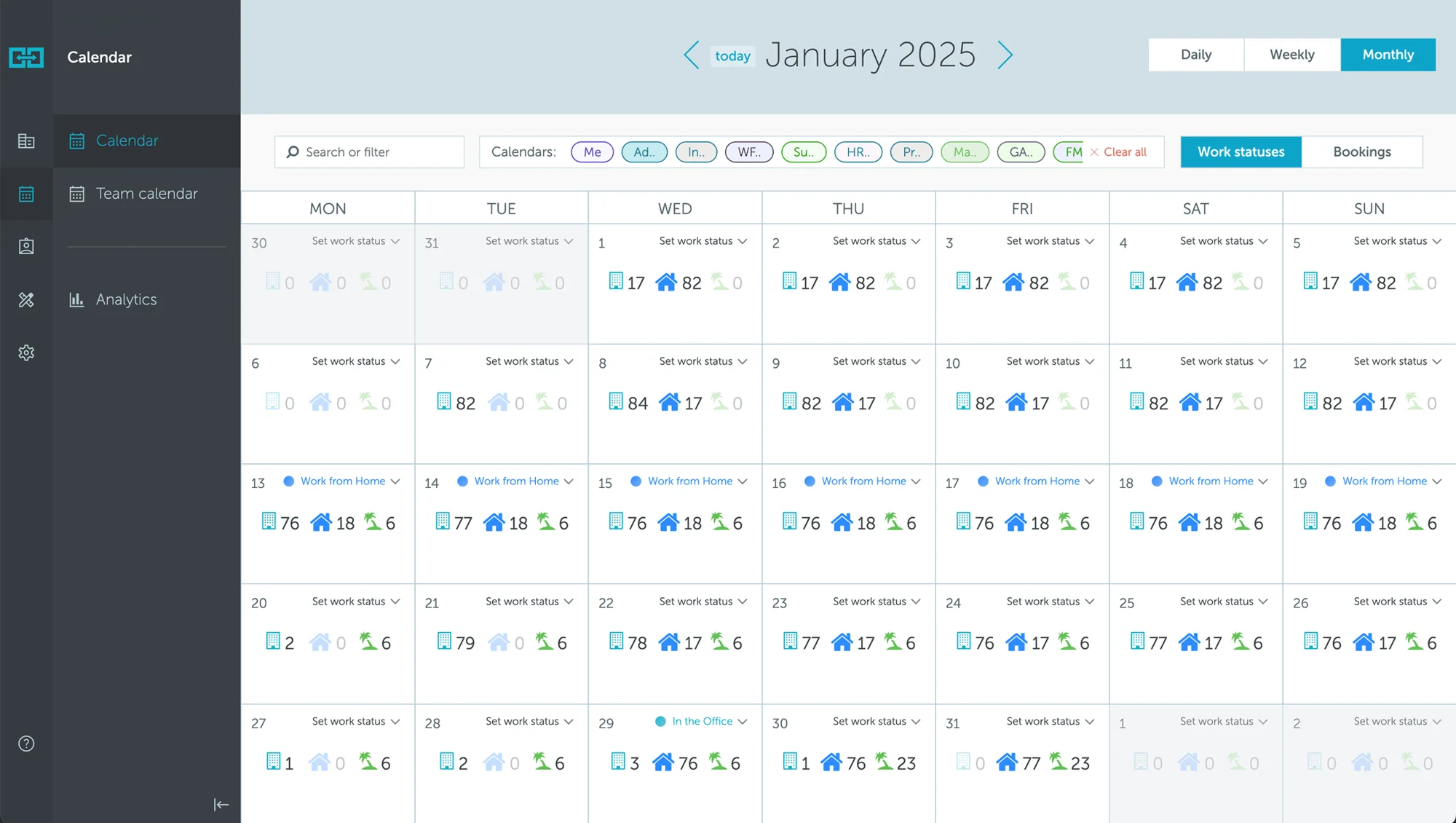
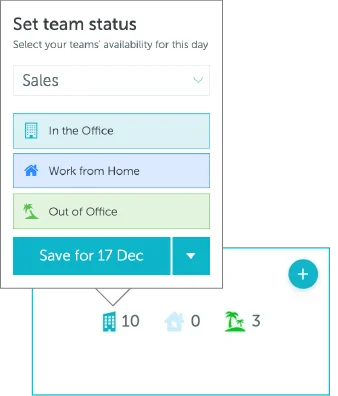
Autonomous scheduling
Team members set their own schedule; managers can set statuses in bulk when needed.
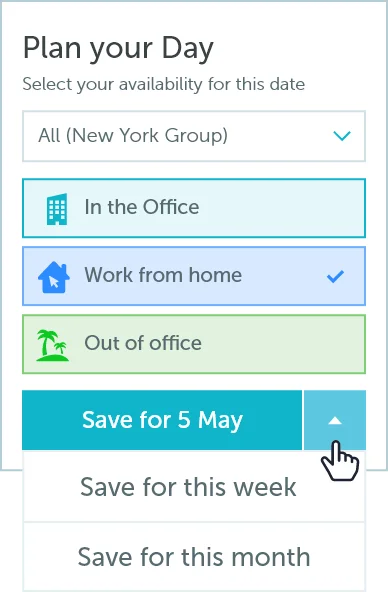
Scheduling intervals
Save work statuses for a day, a week, or a month.
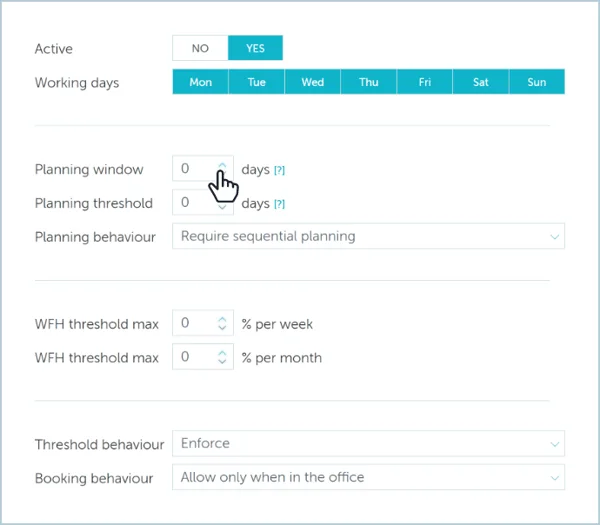
Custom settings and thresholds
Set how far in advance statuses are required and work-from-home limits.
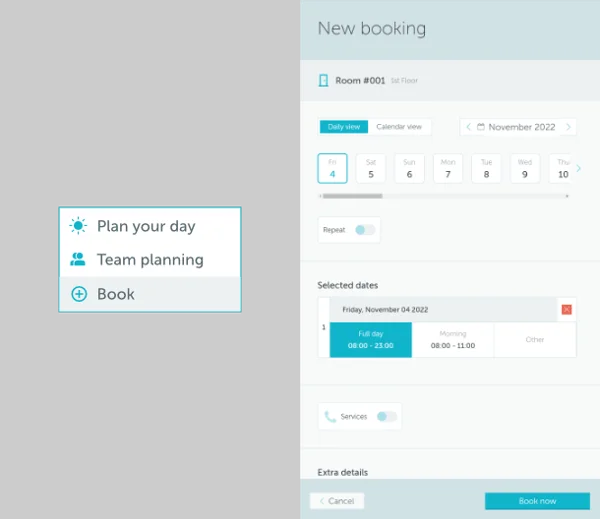
Workspace booking
Book desks, rooms, and parking for office days and see team bookings.
Kianusch Sayah Karadji
Technical Solution Manager

"With the relocation to the new office, we left behind everything we did not need anymore: from furniture to working arrangements. We were ready for a new, hybrid workplace, where employees can choose where they prefer to work—at home or in the office. YAROOMS hybrid work software helped us to put it into practice."
Read the full storyEnterprise-grade security
Your data is protected with industry-leading certifications


Workspace booking for a streamlined hybrid work environment
See real-time availability and book rooms, desks, and parking in one place—so hybrid teams spend less time hunting for space and more time collaborating.
Real-time availability
See which desks and rooms are available across all your office locations in real-time.
Team coordination
View colleague schedules and plan to be in the office on the same days for better collaboration.
Multi-location support
Book workspaces across different office locations from a single platform.
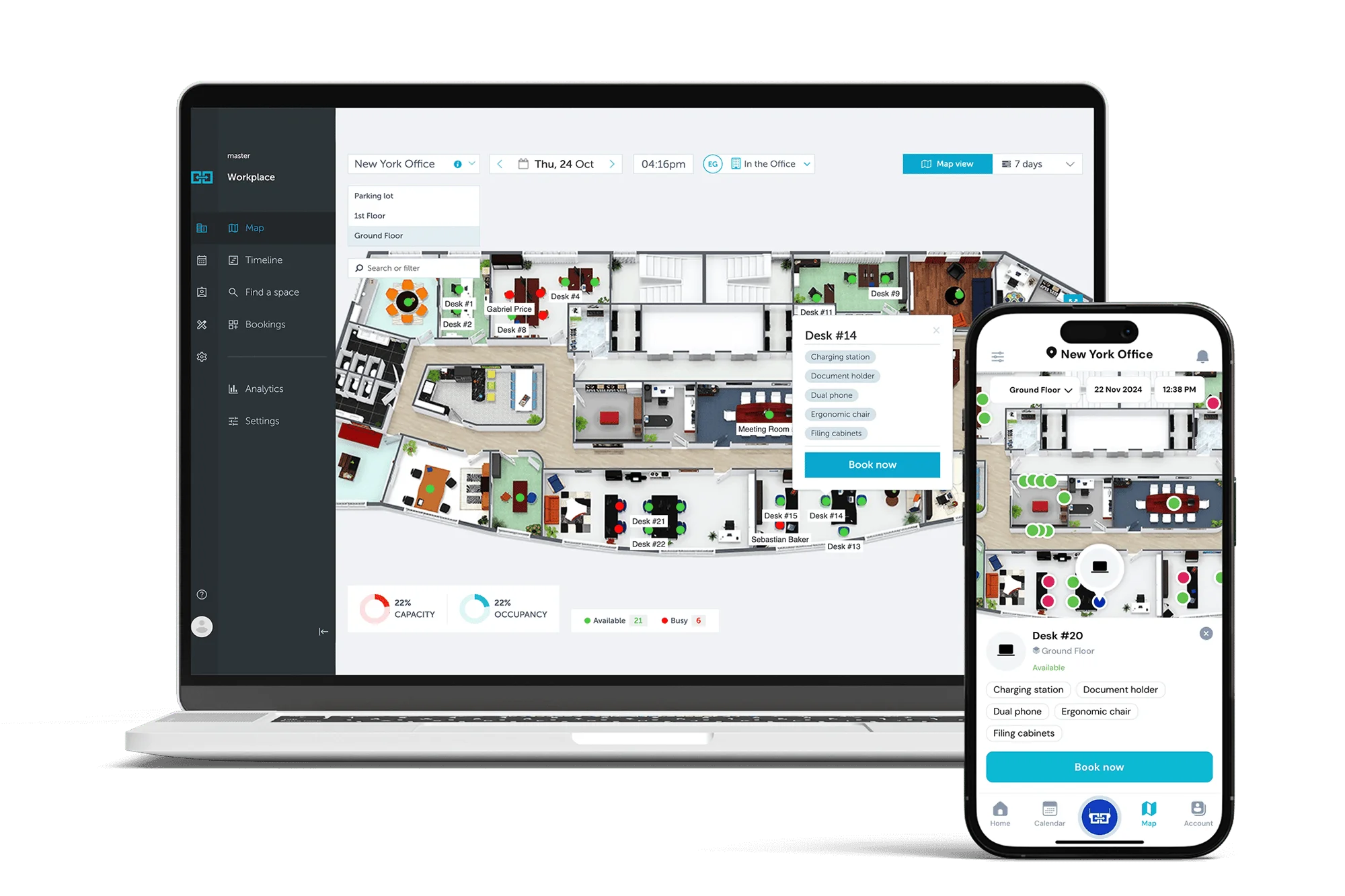
Your hybrid workplace software, in Teams
One place to work: set work status and book space without leaving Microsoft Teams. Adoption stays high and nobody switches context.
Set work status from Teams
Update your hybrid work status without leaving Microsoft Teams.
Book desks in Teams
Reserve your workspace directly from the Teams interface.
View colleague availability
See who's working from the office and who's remote right in Teams.
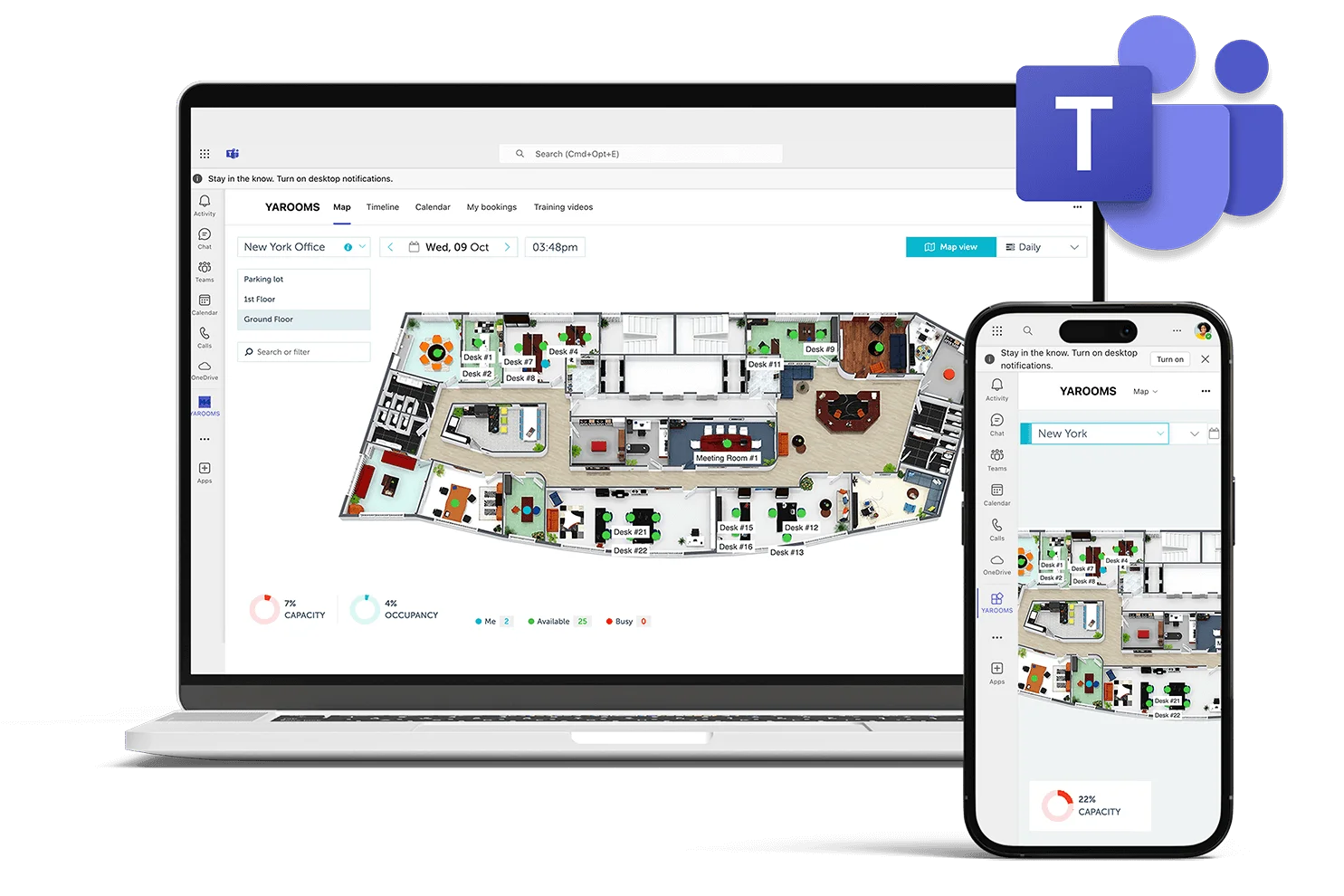
Mobile application for on-the-go scheduling
Book desks and rooms, check the floor map, and see your reservations from your phone. Hybrid workers stay in control whether they're at home or heading to the office.
Schedule on the go
Set your work status and book desks from your smartphone.
Interactive floor maps
Navigate your office with visual floor plans showing available spaces.
Push notifications
Get reminders about upcoming bookings and office days.
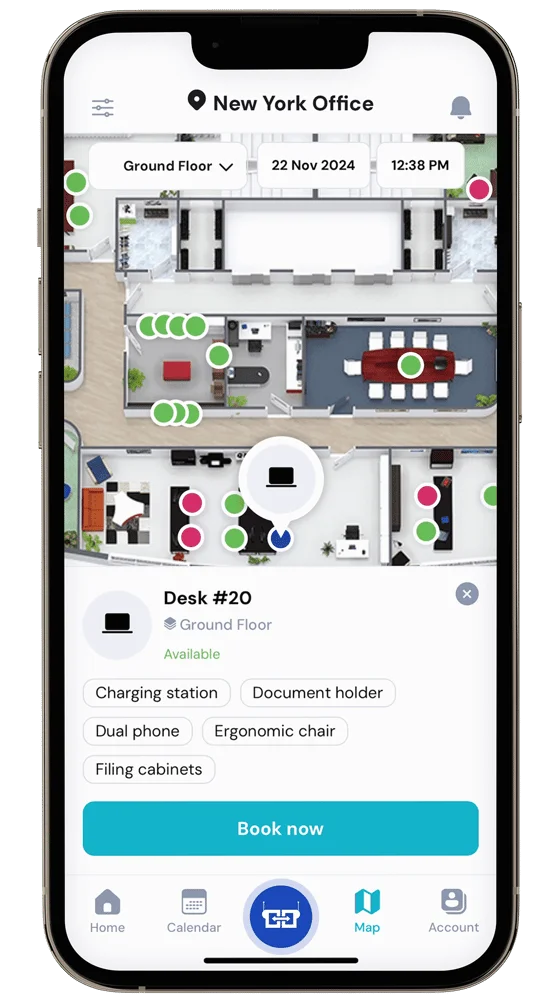
Onboarding & support to set your hybrid work model for success
Your hybrid model runs from day one, not stuck in rollout. We get you live quickly and support you when it matters.
Fast-track onboarding
High-touch onboarding options to help you kickstart with hybrid workplace software quickly.
24/5 customer support
Support available across all time zones whenever you need assistance.
Hybrid work expertise
An experienced team with broad knowledge about hybrid work models and best practices.
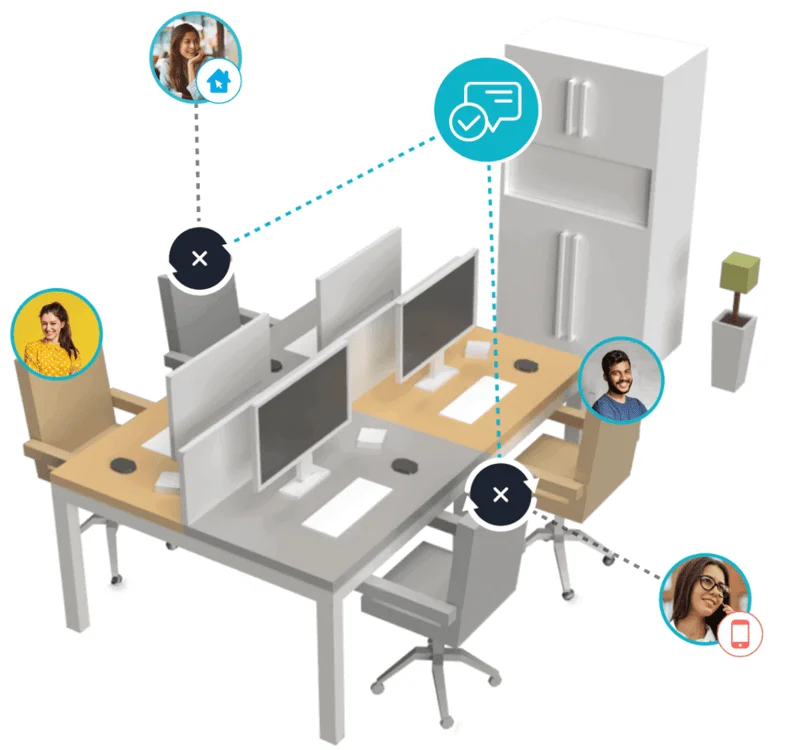
Key benefits of hybrid work software
Complete hybrid work management
Everything you need to manage flexible work arrangements
Work status calendar
A visual calendar showing everyone's work location — office, home, or on-the-go.
Team coordination
See who's in the office and plan your in-person collaboration days accordingly.
Policy enforcement
Set thresholds for office attendance and work-from-home frequency.
Desk booking
Reserve workspaces for your scheduled office days directly from the calendar.
Microsoft Teams
Set work status and book desks without leaving the Teams environment.
Mobile app
Update your schedule and book desks from anywhere with the YAROOMS mobile app.
Hybrid work tools for employee-centric companies
Learn how thousands of forward-thinking organizations use YAROOMS to manage their hybrid workplaces.
Hybrid workplace software: FAQ
Answering the most popular questions about hybrid work software.
Related Products
Desk Booking
A top-rated desk management and booking solution that simplifies workspace reservations and brings …
YAROOMS Mobile App
Keep your teams connected with the tools they need to collaborate and navigate the workplace. …
Yarvis AI Workplace Assistant
Experience the AI difference in managing your day around the office. Available on Microsoft Teams …
Become a partner
Join our growing network of partners worldwide
Application received!
We'll review your details and get back to you soon.
We use cookies to analyze traffic and improve your experience.
Cookie preferences
Required for the site to function
Help us understand how visitors use the site
Used to deliver relevant ads